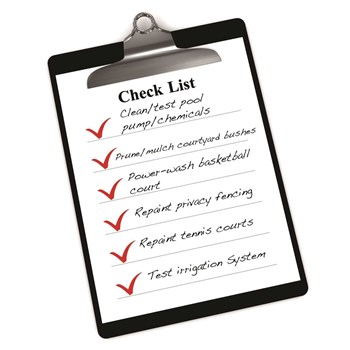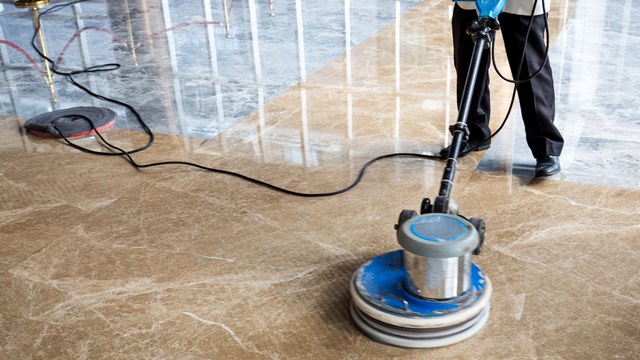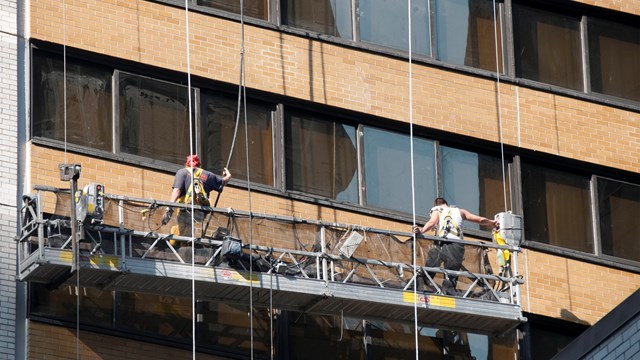
Winter in New York is a magical time, filled with walks through dirt, grime and slush, exorbitant weather-induced dry cleaning bills, and excessive clothing accessories…often enough to shame Ralphie from A Christmas Story.
Upon spring’s arrival, denizens of the tri-state area want nothing more than to bask in the long-dormant sun. Condo and co-op boards cannot, however, in good faith ignore the legwork that follows a seasonal transition. Certain amenities—from barbecues and outdoor common areas to tennis courts and swimming pools—must be prepared for use in the warmer months. Ignoring these leisurely accoutrements can lead to irate residents come Memorial Day.
Given the varied incarnations of residential communities in New York, condos and co-ops can host a wide variety of locations. Martin Kera, a partner with Kera & Graubard Attorneys at Law—whose firm works exclusively with small-to-medium buildings in the city with minimal outdoor space—notes that residents store tables and chairs on the roof during the winter, and set them up themselves during the spring with littler muss (or fuss).
Other urban properties feature shared outdoor areas like grills or small playgrounds, while suburban communities can showcase anything from golf courses to marinas. Regardless of a community's specifics, high winds, snow, ice, and general cold can take a toll on outdoor amenities. With careful planning and light work year-round, an association can avoid a painful overhaul when preparing for spring.
Weather Report
If there's one truth about New York winters, it's that everything is filthy. Thus, condos and co-ops require extensive cleaning as the snow recedes, yielding various unexpected grotesqueries. According to Charles Incandela—executive director of management and client services with the Plainview-based Alexander Wolf & Company—the work falls to either contractors or on-site staff, depending on the nature of the property and the job at hand.
"In some places, we have contractors that do various work every two or three years," he says. "This year, we have several properties where we're going to start work from the outside-in, as soon as winter is over. This means that we begin with the parking lot…sealing and restriping the common area. From there, we progress to getting playgrounds ready, working with contractors to get the pool open, and getting marinas ready if need be."
Incandela recommends that management work with at least a four-month lead time in regard to lining up vendors when outside help is needed. Contracts need to be in place and timetables need to be set to chart performance well in advance so everything can be open by May.
Jay Cohen manages a vast array of buildings in Manhattan and Long Island via his company A. Michael Tyler Realty Corp., and as director of operations, he advocates a spring cleaning that involves washing windows and any other glass surfaces, readying any sprinkler systems to ensure that greenery is properly watered as the weather turns, and pruning or gardening where necessary to make sure that everything is aesthetically pleasing.
"At the end of March or early April, we know that we have to start up the sprinkler system, so we ensure that the heads are working, and that there are no leaks," says Cohen.
Other amenities must be catered to, as well. Rooftop BBQ areas must be cleaned and power washed, which involves removing any furniture (table-tops, chairs, umbrellas, etc.) from the premises, and cleaning those, too. And the stoves themselves have to be spotless, lest residents receive an unhealthy surprise come time to fire up the grill.
Where interiors are concerned, Cohen explains that, in early to mid-March, management schedules touch-ups for doors and hallways, painting of basements, and general laundry room maintenance.
Spring Summit
Both Incandela and Cohen indicate that, often, management companies take the reins when prepping New York co-ops and condos for spring. "It's not [board members'] full-time job," Cohen says, "so they might not be aware of everything that needs to go into a spring cleanup. Some long-time members are on top of things, but—for the most part—people don't understand that every spring, A-B-C-D need to get done. They pay us to stay on top of it."
While both managers express the urgency of starting all projects at least four months in front of their respective end dates, Incandela indicates plans begin as early as the previous autumn. "Everything that we're doing for spring, we discussed prior to last Thanksgiving," he explains. "We start in-house, and then send our proposed plans to board members for review. They get back to us with any comments, questions or concerns, and then the management team sits down and reviews everything. From time to time, we'll contact an engineer if we need assistance, or if we just feel that it's time for a courtesy review; that gets put into the plan and budgeted. At 80 percent of our properties, the budgets have been approved since October of the year before, so we know where the money's going and everything is appropriately targeted."
Having a firm checklist to consult year after year can help expedite the preparation process, but managers must be ready to handle unforeseen circumstances, as well. Different properties require different procedures…a uniform list won't hold. "Every building requires a different set of items," says Cohen. "For example…not every building needs its basement painted, and not every property even has an outdoor sprinkler system. There are variables."
Along with the aforementioned tasks, boilers need to be checked and cleaned after the winter. Cohen also notes that they check and clean water filtration systems and inspect compactors. Roof drains, pumps, and motors...those instruments that play a part in day-to-day operations all need to be observed if a property is to be ready for spring.
PlayStations
Playgrounds, pools or tennis courts—it can sometimes feel as if the amenities that promise the most frivolity can also provide the most hassle. There are tips that help minimize an association's frustration come time for leisure preparation.
Richard N. Hagelberg, CPSI and CEO of Kidstuff Playsystems—based in Gary, Indiana, has more than 32 years of experience with all aspects of playgrounds. Hagelberg recommends regularly scheduled playground inspection, at least four times per year, by a responsible delegate with proven mechanical aptitude. When more elaborate equipment is involved, Hagelberg suggests consulting the Consumer Products Safety Commission (CPSC) Playground Safety Guidelines.
While newer playground equipment is safer and easier to maintain (i.e., less regular and less detailed inspections required throughout the year), replacing an existing play area can be expensive, with costs approaching $45,000-$50,000, and must hold up to the codes as delineated by the Americans with Disabilities Act (ADA) for things like wheelchair accessibility, according to Hagelberg. Thus, it is best an association properly looks after the playground it has…lest it put a serious dent in the amenities budget.
With tennis courts, Incandela explains, maintenance needs to start around the first week in April. Windscreens and nets must be installed and cleaned, and floors need to be inspected and washed; thorough inspection in the fall can help minimize efforts come late winter.
Once those tasks are complete, attention shifts to the swimming pool, which requires more care, yet. Incandela deals with a wide variety of pool configurations within his properties, from a single Olympic-sized to a combination child pool/adult pool to multiple large pools that require lifeguards and additional staffing. Depending on the amount of necessary personnel, a pool management company may be hired to handle the day-to-day. In smaller communities, management will hire lifeguards and handle preparation. Incandela notes that, in his company, "half of our managers are licensed pool operators—myself included—so we're doing our own inspections to make sure that everything is in good working order."
Watch Out Now
As with any procedure that involves long-term communication between several groups, things get lost in the shuffle. Both Cohen and Incandela have spotted avoidable mistakes over the years that boards and management alike should understand in order to have their properties in working order come May.
Cohen points out the less glamorous side of condo and amenity preparation. "People often assume that they don't have to touch pumps and motors…things that are working all the time,” he says. “But they need to be tuned up, oiled, and lubricated. Sometimes, people will forget to clean their boilers…not realizing that they accumulate soot. This is especially important with an oil burner, which should receive a major cleaning at least four times per year, with minor cleaning monthly. Gas burners need to be cleaned once annually. Finally, people forget to check roof drains every week. Next thing they know, they're clogged, and there are leaks from overflows."
Incandela observes that many of the most inconvenient slights are not made during spring prep…but during fall. "A lot of communities will get near spring and start to open up their pools, only to realize that they're in bad shape and needs to be marble-dusted,” he says. “Now, they're not opening on time often because no one did an inspection upon closing last year before the pool was covered. Or—with a tennis court—they'll fail to take the windscreens down on time so they're not damaged. You make a $10,000 investment for windscreens for a tennis court, you need to take them down in the fall before the wind starts howling and it gets cold and they shrink and get torn. Little things like these can add up."
When it comes to readying a condo or co-op for spring—arguably the best time to enjoy living in such a communal environment—the old adage holds: a stitch in time saves nine. By having an effective checklist and a willingness to explore (and predict) new issues, an association or management company can have amenities in full operation before the masses get restless. As with many other aspects of communal management, a combination of good communication, observation, and preemptive action can work wonders on meeting the lovely new weather with open arms.
Mike Odenthal is a staff writer at The Cooperator. Anne Childers is a freelance writer who contributed to this article.






Leave a Comment